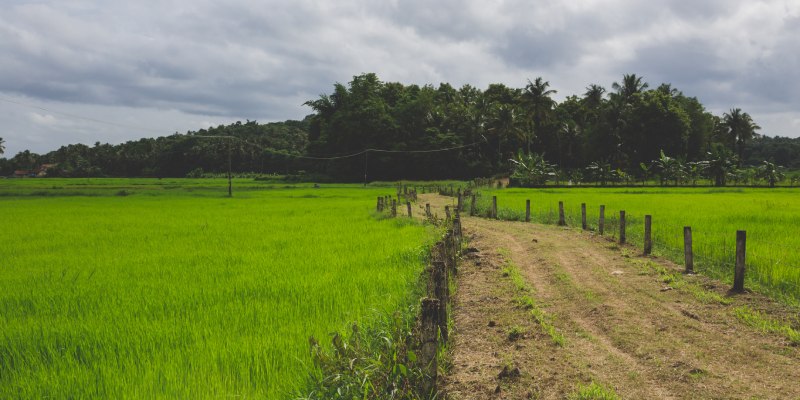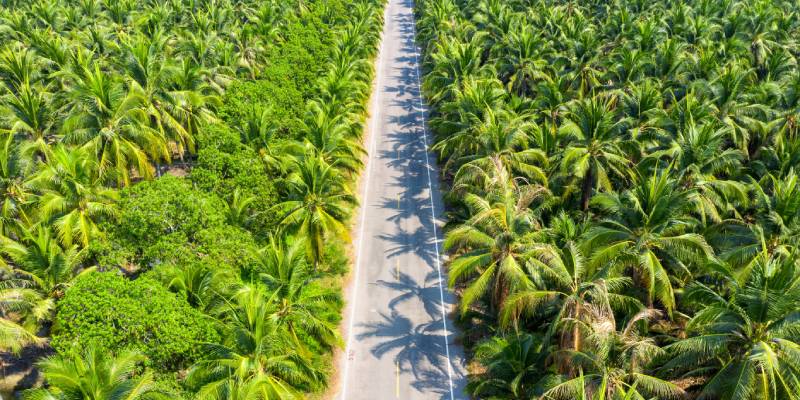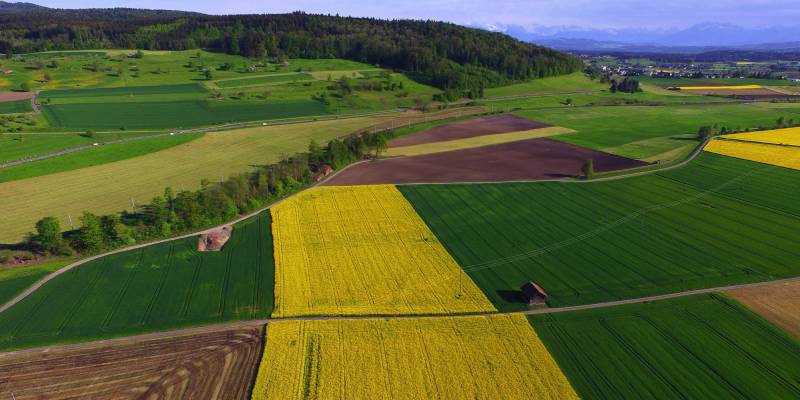Are you searching for affordable farm plots for sale near Bangalore in 2024? Whether you’re looking to escape the hustle and bustle of city life, grow your own organic produce, or secure a valuable investment, farm plots near Bangalore offer an ideal solution. This comprehensive guide will explore the benefits, investment potential, and how to find the perfect farm plot for your needs.
Why Choose Farm Plots Near Bangalore?
Discover the advantages of owning farm plots near Bangalore for convenience and investment.
Proximity to the City
Farm plots near Bangalore offer the perfect balance of rural tranquility and urban convenience.
- Convenient Access: These plots are located within easy reach of the city’s amenities and services, ensuring that you can enjoy the best of both worlds.
- Short Commute: Enjoy the peace and quiet of rural life without sacrificing the convenience of a short commute to Bangalore for work or leisure.
Growing Demand
The demand for farm plots near Bangalore is steadily increasing, making it a lucrative investment opportunity.
- High Demand: With more people seeking refuge from the urban hustle, the popularity of farm plots is on the rise.
- Urban Escape: These plots provide a perfect getaway for those looking to escape city life while still being close to it.
Affordable Pricing
Compared to urban real estate, farm plots near Bangalore are more affordable, offering great value for money.
- Cost-Effective: Invest in a farm plot at a fraction of the cost of city properties.
- Value for Money: Get more land for your investment, allowing ample space for agricultural activities or leisure purposes.
Health and Wellness
Owning a farm plot offers numerous health and wellness benefits, making it a perfect choice for those seeking a healthier lifestyle.
- Fresh Air: Enjoy cleaner, fresher air, away from the pollution of the city.
- Organic Produce: Grow your own organic fruits and vegetables, ensuring a healthier diet for you and your family.
Financial Security
Investing in a farm plot provides financial security and a steady income stream.
- Land Appreciation: Farm plots typically appreciate in value over time, offering a secure investment.
- Steady Income: Generate income through farming activities or by renting out the land.
Lifestyle Improvement
A farm plot can significantly enhance your lifestyle by offering a peaceful and fulfilling environment.
- Peaceful Living: Experience the serenity and tranquility of rural living, away from the noise and stress of urban areas.
- Recreational Activities: Engage in various outdoor activities such as gardening, hiking, and bird watching, promoting a more active and enjoyable lifestyle.
How to Find Affordable Farm Plots for Sale Near Bangalore with Sanjeevani Farms

Explore the affordable farm plots near Bangalore with Sanjeevani Farms through these essential steps:
Check Our Website
Begin your search by exploring our website’s farm plots available near Bangalore.
- Updated Information: Stay informed with real-time updates on availability, pricing, and plot details.
- Virtual Tours: Take virtual tours of our farm plots to get a feel for the serene countryside and the amenities offered.
Consult with Our Real Estate Experts
Gain valuable insights and guidance from our experienced real estate experts.
- Personalized Guidance: Receive personalized assistance tailored to your investment goals and lifestyle preferences.
- Expert Advice: Benefit from expert advice on property selection, financing options, and legal aspects.
Investment Potential of Farm Plots Near Bangalore
Understand the steady appreciation and diversification benefits of farm plot investments.
Steady Appreciation
Farm plots near Bangalore are known for their steady appreciation in value, making them a secure investment.
- Rising Land Values: The value of farm plots in this area tends to increase over time, ensuring a good return on investment.
- Secure Investment: Land is a tangible asset that offers stability compared to the volatile stock market.
Diversified Portfolio
Investing in farm plots adds diversification to your investment portfolio, enhancing financial security.
- Tangible Asset: Land is a tangible asset that provides a hedge against inflation.
- Hedge Against Inflation: Real estate often acts as a protective measure against inflation, preserving the value of your investment.
Potential for Development
Farm plots near Bangalore have significant potential for future development, increasing their investment value.
- Future Projects: As Bangalore expands, nearby farm plots may become prime locations for future development.
- Increased Demand: Anticipate higher returns as the demand for land in these areas grows.
Which are the Affordable Farm Plots for Sale Near Bangalore 2024?
At Sanjeevani Farms, we offer a range of affordable farm plots near Bangalore, designed to meet your needs. Our plots are situated in prime locations, providing the perfect blend of rural serenity and urban convenience. With a commitment to sustainable and organic farming practices, Sanjeevani Farms is your gateway to a healthier, greener lifestyle.
Why Choose Sanjeevani Farms Farm Plots Near Bangalore?
- Eco-Friendly Practices: We utilize sustainable farming methods that promote environmental health.
- Organic Farming: Experience the benefits of organic farming and enjoy fresh, healthy produce.
- Modern Facilities: Enjoy amenities like drip irrigation, solar fencing, and community centers.
- Recreational Spaces: Our farms include spaces for recreational activities, ensuring a balanced and fulfilling lifestyle.
- Community Events: Participate in community events and build lasting relationships with like-minded individuals.
- Supportive Environment: Our supportive community ensures you feel at home and engaged.
Conclusion
Investing in affordable farm plots near Bangalore in 2024 is a wise choice for those looking to escape city life, embrace a healthier lifestyle, and secure a valuable asset. Sanjeevani Farms offers premium farm plots that combine the best of rural and urban living, with a strong focus on sustainability and community. Whether you’re seeking a serene retreat, a secure investment, or an opportunity to engage in sustainable farming practices, Sanjeevani Farms provides the ideal setting.
Make the smart choice today and invest in a farm plot at Sanjeevani Farms. Contact us at +91-9019345600 to schedule a site visit and begin your journey towards owning a piece of countryside paradise. Your dream investment awaits at Sanjeevani Farms.
FAQs
What are the benefits of owning a farm plot near Bangalore?
Owning a farm plot near Bangalore offers benefits such as fresh air, organic produce, financial security, and a peaceful lifestyle.
How can I find affordable farm plots for sale near Bangalore?
You can find affordable farm plots by researching online, visiting local real estate agents, and attending property expos.
Why should I choose Sanjeevani Farms?
Sanjeevani Farms offers sustainable living, modern amenities, and a supportive community, making it an ideal choice for farm plot investment.
What is the investment potential of farm plots near Bangalore?
Farm plots near Bangalore have a steady appreciation in value, provide financial security, and offer potential for future development.
Are there any exclusive premium farm plots available for sale?
Yes, you can find exclusive premium farm plots near Bangalore by engaging with reputable developers, checking amenities, and focusing on prime locations.





